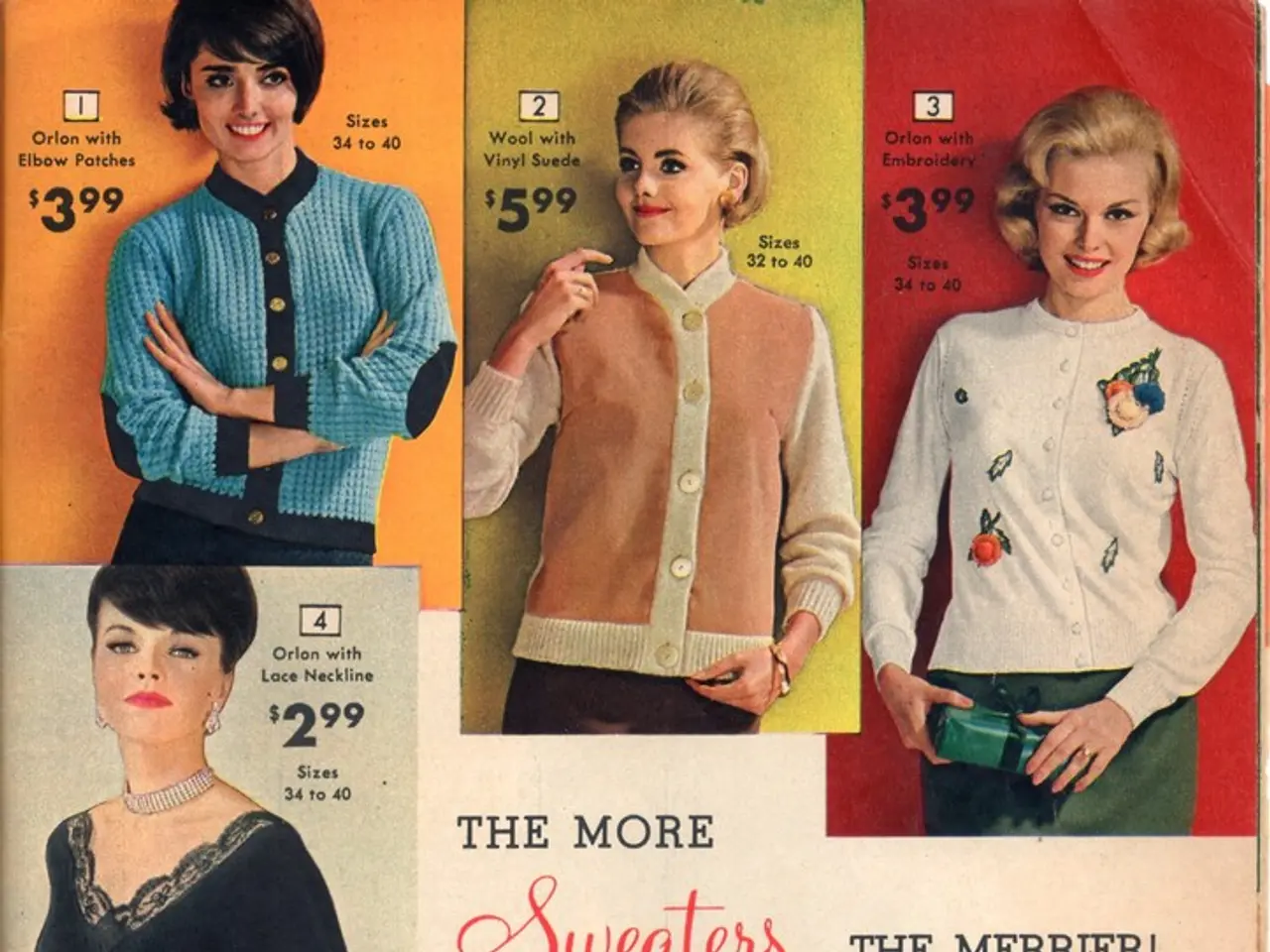Impact of Premium Fashion Labels on Campus Style Trends
In the vibrant world of higher education, luxury fashion brands have carved a significant niche, shaping student fashion choices and social dynamics in intricate ways.
College students, increasingly aware of the environmental and social effects of their fashion choices, are drawn to brands that prioritise ethical production methods and transparency. This growing consciousness reflects a generation that values sustainability and social responsibility in their purchases.
The allure of luxury fashion for this demographic stems from several factors. For one, luxury brands often serve as symbols of social identity, status, and self-concept. They act as markers that signal membership in a particular social class or group, which is especially appealing to students navigating social hierarchies and developing their personal identities.
The desire for social distinction and acceptance is another driving force. Luxury brands are often perceived as exclusive and prestigious, helping students express individuality while fitting into aspirational social circles.
Moreover, luxury brands today emphasise heritage, values, and stories, making them emotionally and culturally attractive to young consumers who seek deeper meaning beyond just owning a product.
Psychological needs also play a role. Exposure to luxury fashion relates to dopamine-driven rewards and the basic human need to belong and be recognised socially, intensified during the developmental stage of adolescence and early adulthood.
Interestingly, many luxury brands promote longevity and responsible consumption, aligning with contemporary values of younger consumers, which can enhance brand appeal amid growing environmental awareness.
Social media intensifies the influence of luxury fashion brands, making luxury items highly desirable among students. Fashion Weeks, where luxury brands announce new collections, capture student attention through social media and dictate future trends. The allure of exclusive fashion events contributes to the desirability of luxury items among students.
However, it's important to note that ethical considerations, such as sustainability, honest labor practices, and animal welfare, are increasingly important factors in students' purchasing decisions. Peer pressure and social status still influence students to purchase luxury fashion products to boost their social standing and receive recognition from friends.
Despite cheaper alternatives offered by mass merchandisers, many youths still desire the authentic luxury product. The integrity, quality, and symbolic value associated with luxury brands make them an enduring choice among college students.
In summary, luxury fashion brands impact student fashion choices and social dynamics through status signalling, identity expression, emotional storytelling, and alignment with social needs, making them particularly attractive to adolescents seeking recognition and belonging during their formative educational years.
Luxury fashion brands expand their influence beyond fashion choices, shaping both lifestyle and social-media preferences among college students. The allure of fashion-and-beauty trends, entertainment, and education-and-self-development content from these brands on social media further solidifies their impact, reflecting a generation that values distinction and self-expression.
The desirability of luxury brands, in part, stems from their association with ethical production methods and transparency, aligning with students' growing consciousness and values of sustainability and social responsibility.




